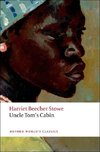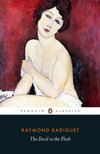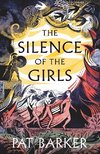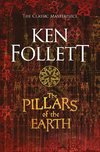
-
 Anglický jazyk
Anglický jazyk
Sufi poetry
Autor: Source: Wikipedia
Source: Wikipedia. Pages: 88. Chapters: Sufi poets, Rumi, Yunus Emre, Ibn Arabi, Tahir-ul-Qadri, Fariduddin Ganjshakar, Amir Khusrow, Saadi, Hafez, Attar of Nishapur, Ismail I, Shah Abdul Latif Bhittai, Abdul Ghaffar Naqshbandi, Y. Misdaq, Hajib Shakarbar,... Viac o knihe
Na objednávku
20.94 €
bežná cena: 23.80 €
O knihe
Source: Wikipedia. Pages: 88. Chapters: Sufi poets, Rumi, Yunus Emre, Ibn Arabi, Tahir-ul-Qadri, Fariduddin Ganjshakar, Amir Khusrow, Saadi, Hafez, Attar of Nishapur, Ismail I, Shah Abdul Latif Bhittai, Abdul Ghaffar Naqshbandi, Y. Misdaq, Hajib Shakarbar, Maulvi Ghulam Rasool, Sultan Walad, Mirza Mazhar Jan-e-Janaan, Younus AlGohar, Rabia Basri, Muzaffar Iqbal, Javad Nurbakhsh, Tahir Allauddin, Jami, Sufi Barkat Ali, Bulleh Shah, Muhammad Abdul Qadeer Siddiqi Qadri, Shah Inayatullah, Ibn al-Farid, Lal Shahbaz Qalandar, Sanai, Khoja Akhmet Yassawi, Fakhr-al-Din Iraqi, Mian Muhammad Bakhsh, Shah Ni'matullah-i Wali, Afdal al-Din Kashani, Lex Hixon, Nesâtî, G. M. Syed, Khwaja Ghulam Farid, Sachal Sarmast, Allama Muhammad Idrees Dahiri, Gül Baba, Kafi, Shah Hussain, Hatef Esfehani, Ameena Begum, Sufi Way, Khwaja Mir Dard, Salacioglu, Khwaju Kermani, Bari Imam, Mahmud Shabistari, Muzaffer Ozak, Najmuddin Kubra, Aida Touré, Kamal Khujandi, Niazi Brothers, Bullah Ki Jaana, Aglar Baba, Abdul Quddus Gangohi, Gulshan-i Raz, Kulliyyat-e-Hasrat, Makhdoom Bilawal, Junayd Shirazi, Pirani, Syed Misri Shah, Shah Abdul Karim Bulri. Excerpt: Jalal ad-Din Mu¿ammad Balkhi (Persian: ), also known as Jalal ad-Din Mu¿ammad Rumi (Persian: ), and popularly known as Mowlana (Persian: ) but known to the English-speaking world simply as Rumi (30 September 1207 - 17 December 1273), was a 13th-century Persian Muslim poet, jurist, theologian, and Sufi mystic. Rumi is a descriptive name meaning "the Roman" since he lived most of his life in an area called Rum (then under the control of Seljuq dynasty) because it was once ruled by the Eastern Roman Empire. He was born in Balkh Province in Afghanistan. a small town located at the river Wakhsh in Persia (in what is now Tajikistan). Wakhsh belonged to the larger province of Balkh, and in the year Rumi was born, his father was an appointed scholar there. Both these cities were at the time included in the greater Persian cultural sphere of Khorasan, the easternmost province of Persia, and were part of the Khwarezmian Empire. His birthplace and native language both indicate a Persian heritage. His father decided to migrate westwards due to quarrels between different dynasties in Khorasan, opposition to the Khwarizmid Shahs who were considered devious by Baha ud-Din Walad (Rumi's father), or fear of the impending Mongol cataclysm. Rumi's family traveled west, first performing the Hajj and eventually settling in the Anatolian city Konya (capital of the Seljuk Sultanate of Rum, in present-day Turkey). This was where he lived most of his life, and here he composed one of the crowning glories of Persian literature which profoundly affected the culture of the area. He lived most of his life under the Sultanate of Rum, where he produced his works and died in 1273 AD. He was buried in Konya and his shrine became a place of pilgrimage. Following his death, his followers and his son Sultan Walad founded the Mawlawiyah Sufi Order, also known as the Order of the Whirling Dervishes, famous for its Sufi dance known as the sama¿ ceremony. Rumi's works are written in the New Persian langua
- Vydavateľstvo: Books LLC, Reference Series
- Rok vydania: 2015
- Formát: Paperback
- Rozmer: 246 x 189 mm
- Jazyk: Anglický jazyk
- ISBN: 9781157545316











 Nemecký jazyk
Nemecký jazyk 
